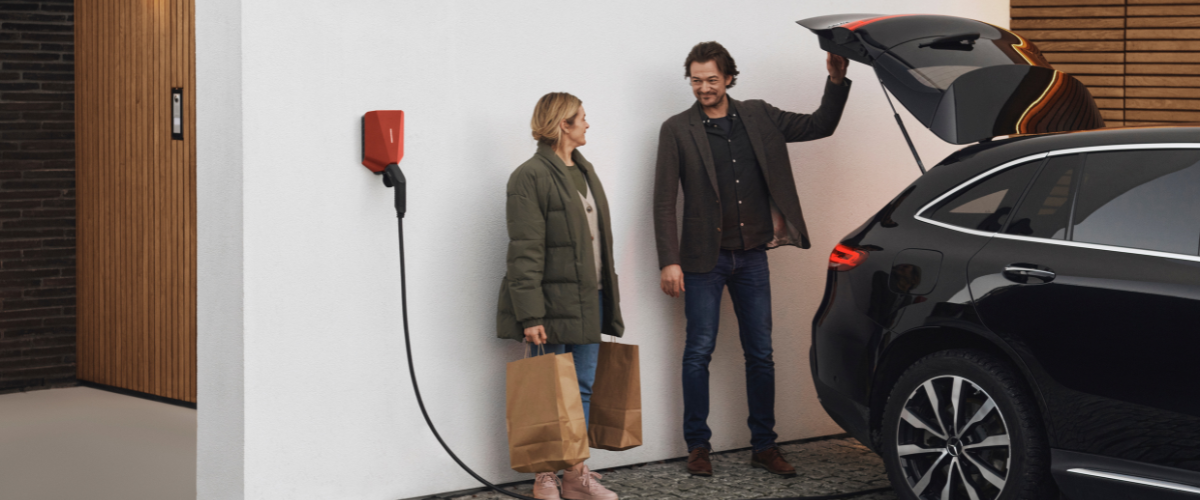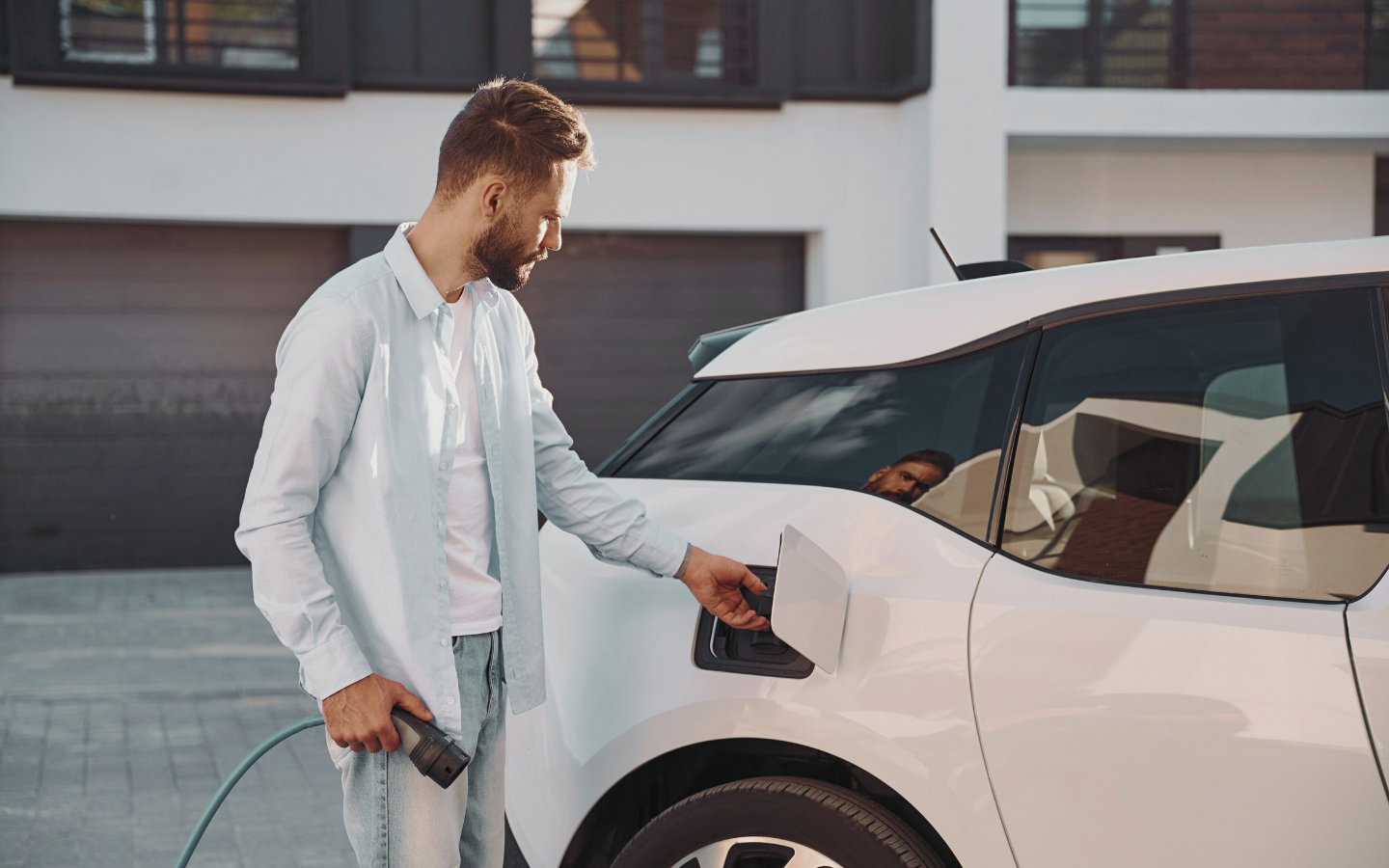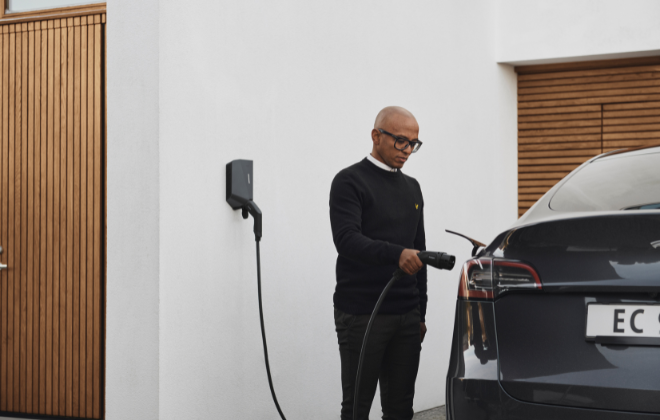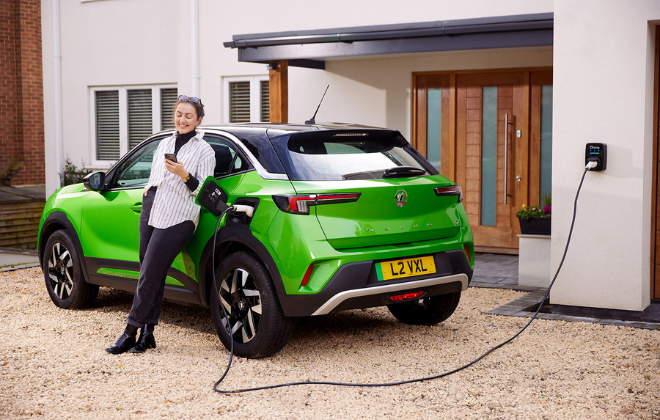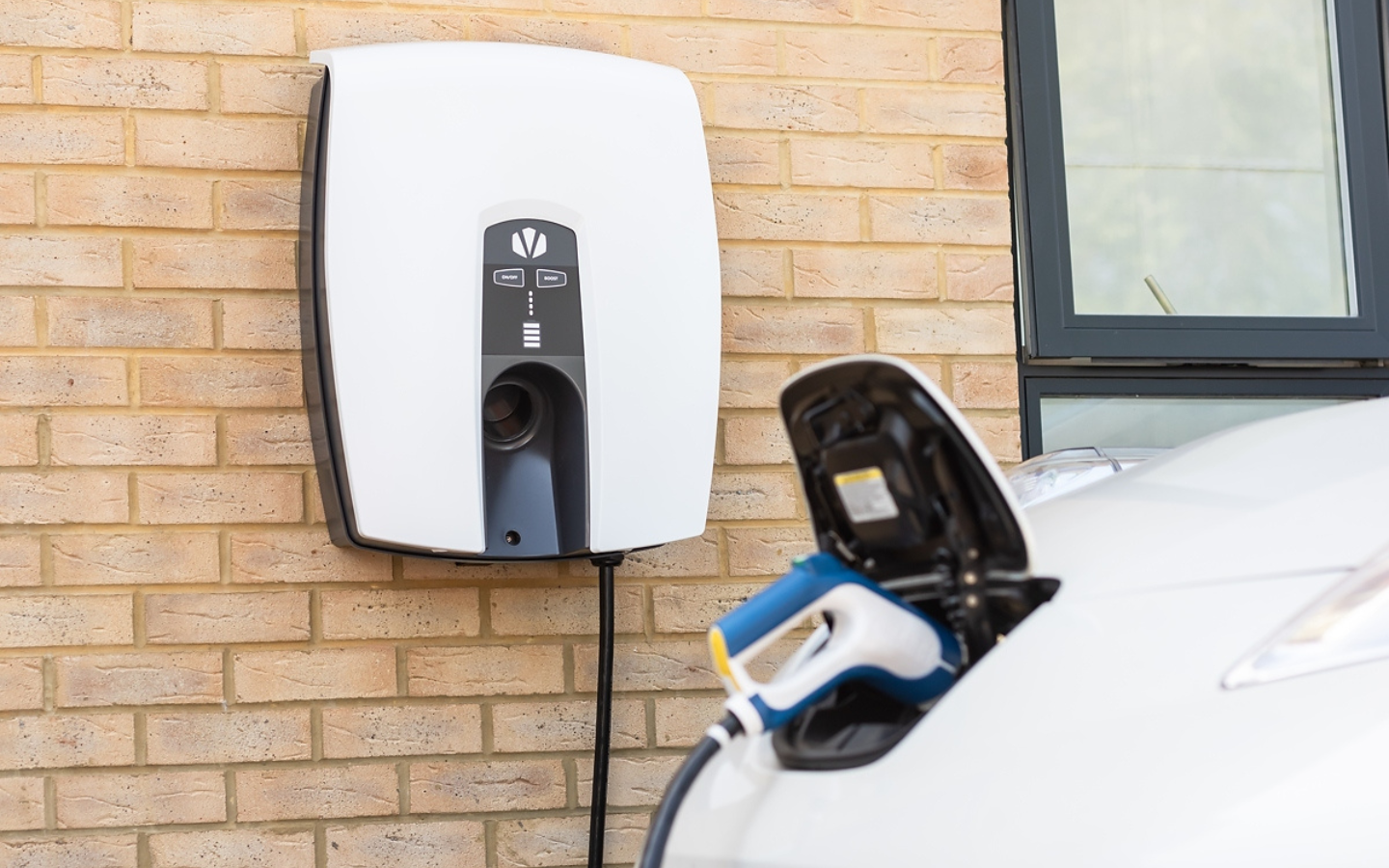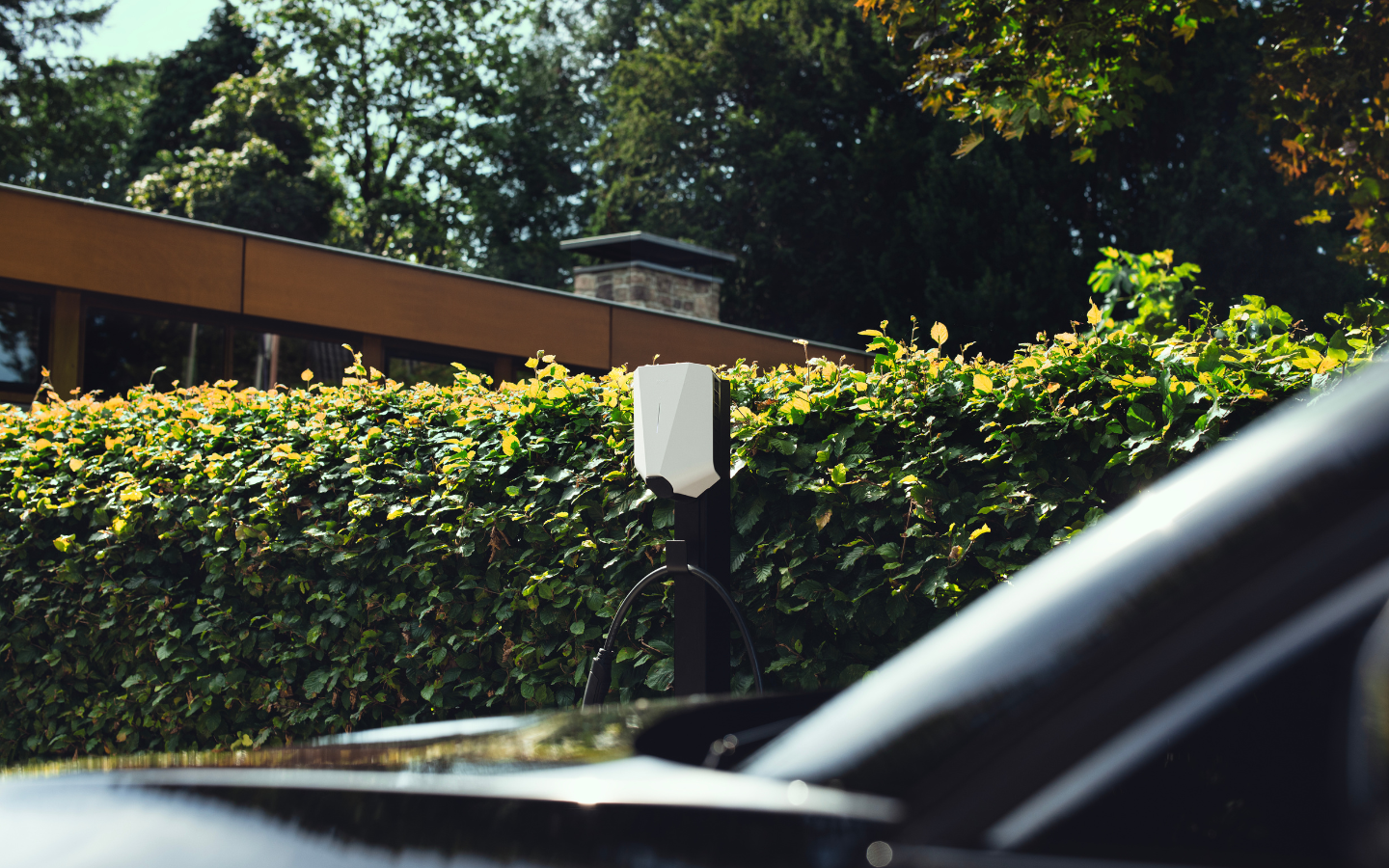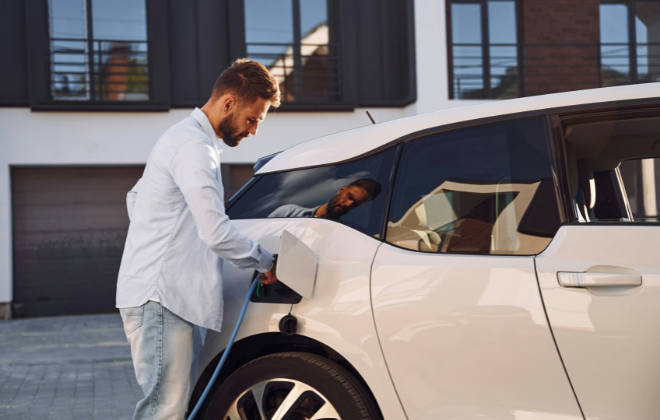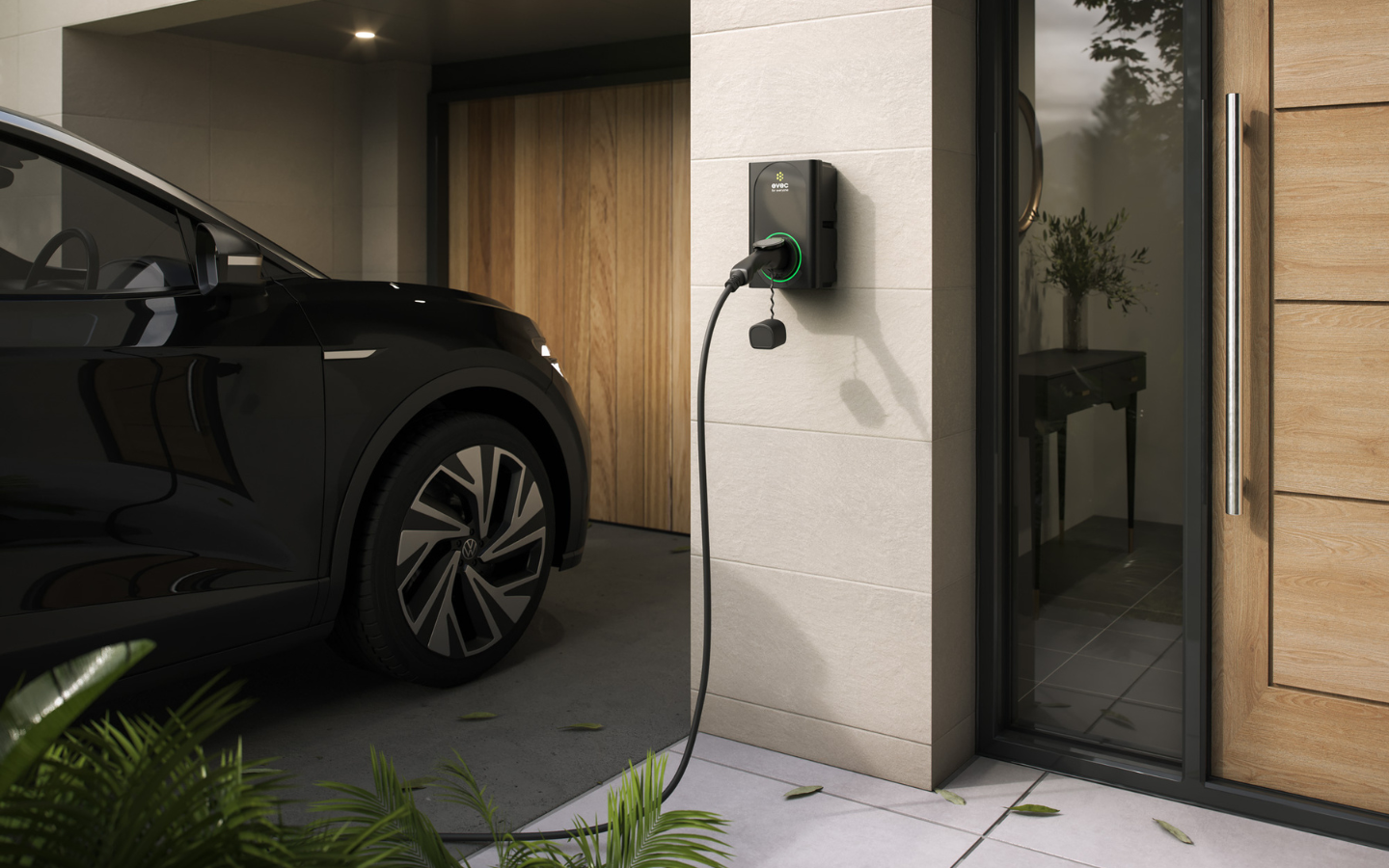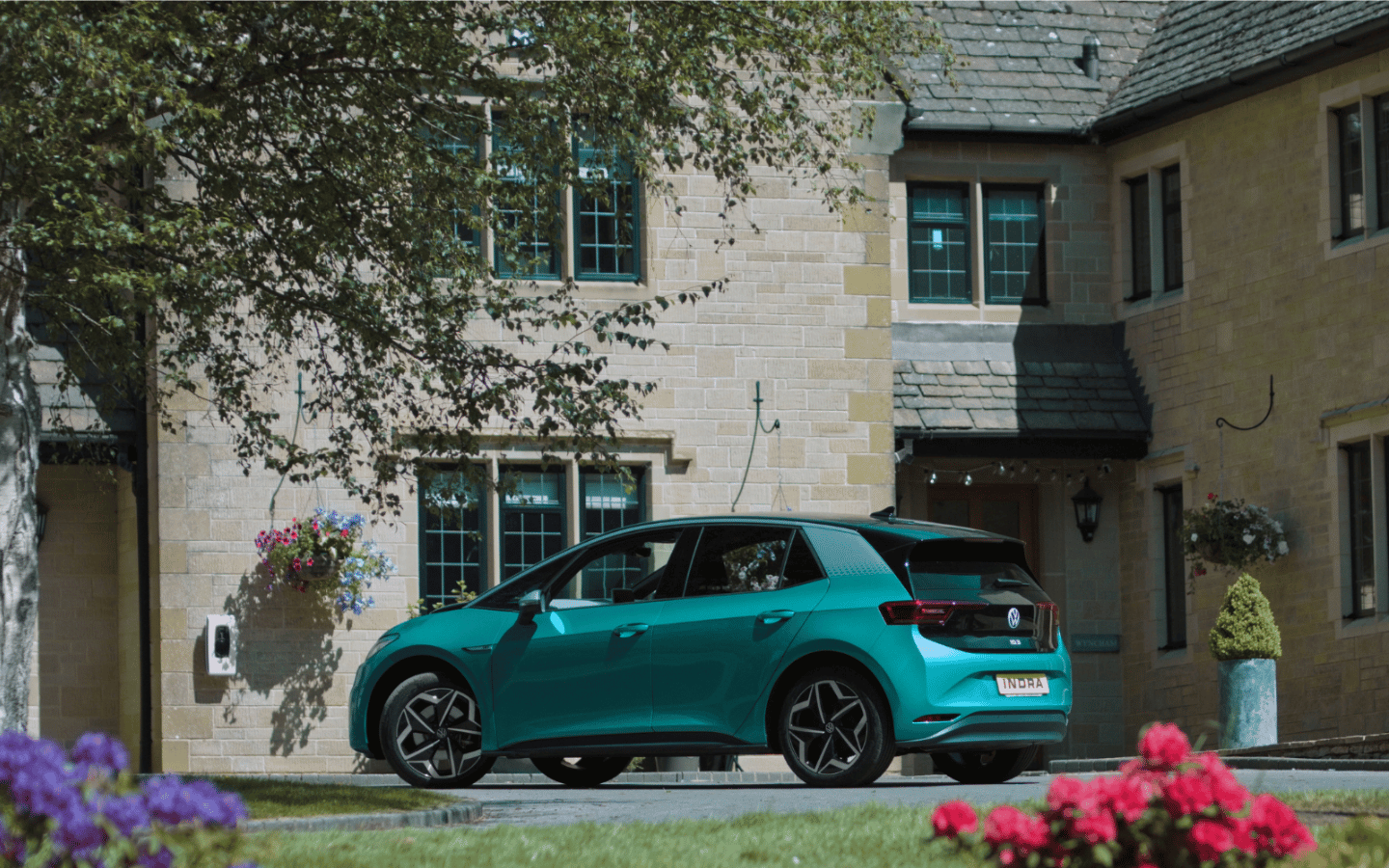

Do you need planning permission for EV chargers?
Interested in having an electric vehicle charger installed on your property? If so, you may be wondering – do you need planning permission for EV chargers?
In this article, we’ll explore the permissions, regulations and permits surrounding EV charger installation in the UK and discuss what’s needed to ensure your charger is compliant with the law.
Do you need planning permission for EV chargers?
Typically, planning permission is not required to have an electric vehicle (EV) charger installed on your property. If you want your EV charger wall mounted on your own land and you have off-street parking, you’re good to go – however, the electrical outlet and casing must not:
- Exceed 0.2 cubic metres
- Face onto and be within two metres of a highway
- Be within a site designated as a scheduled monument
- Be within the curtilage of a listed building
Alternatively, if you are interested in a ground-mounted charger (where the unit sits on a base or post), you’ll need to have off-street parking and own the land. In addition, the electrical outlet and casing must not:
- Exceed 2.3 cubic metres
- Be within two metres of a highway
- Be within a site designated as a scheduled monument
- Be mounted higher than 1.6 metres from level surface used for parking vehicles
- Be within the curtilage of a listed building
- Have more than one charging point per allocated parking space
Of course, there are exceptions to this.
Do you need planning permission for an EV charger if you live in a listed building?
Yes, if your property is a listed building or is located in a conservation area, you must obtain planning permission for your electric car charger due to the nature of the building.
Do you need off-street parking for a home EV charger installation?
As mentioned before, normally, if you don’t have off-street parking, you wouldn’t be able to have an EV charger installed on your land, and you’d have to resort to slow – and potentially dangerous – three-pin plug charging or, alternatively, public rapid chargers.
But don’t fret – we have a new innovative solution for you – the ChargeArm.
With the ChargeArm, you can have a dedicated EV charger installed on your property, even without off-street parking. However, the caveat to this is that you will need to get planning permission from your local council before the unit can be installed.
However, we feel the benefits, such as easier, cheaper charging, outweigh the inconvenience of contacting your local council.
It’s worth noting that the regulations and guidelines regarding EV charger installations may vary between different local authorities, so it’s always best practice to check with your local planning authority to determine whether permission is required.
At We Power Your Car, we guide you through the installation process, whether you require a home EV charger – off-street or on-street – a charger(s) for flats, apartments or commercial installations.
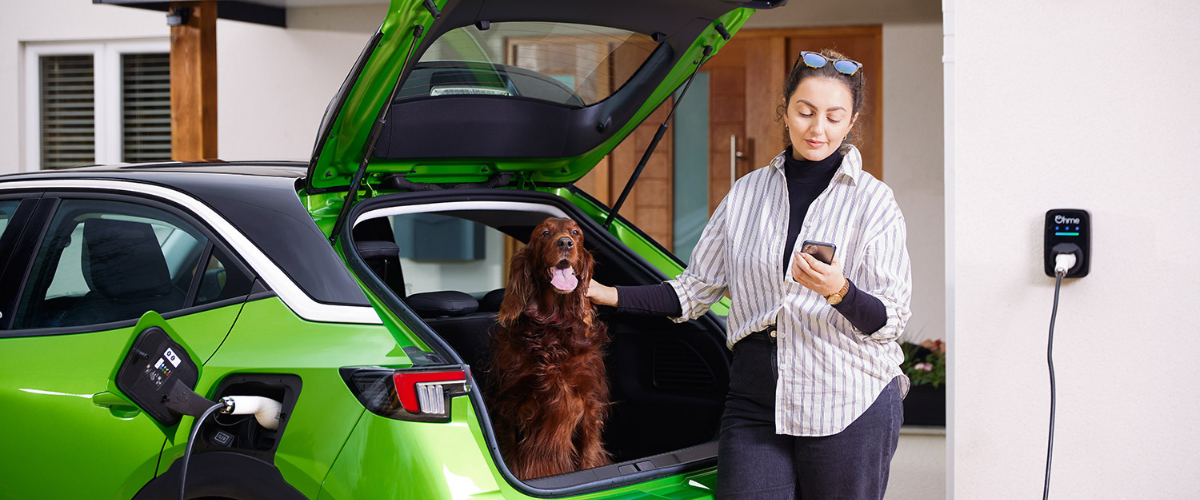
Do you need other permissions or need to meet certain regulations when installing an EV charger on a property?
Overall, the requirements of an EV charger installation vary depending on certain factors, such as location and the type of property. That said, there are several forms of permission that you may need to obtain before installing an EV charger on your property in the UK:
1. Landlord or Property Manager Permission
If you rent your property or live in a multi-unit building, you must obtain permission from your landlord or property manager before installing an EV charger.
In truth, electric vehicle charger installations in rented properties can be more complicated than in a property you own. Not only because installations tend to be slightly trickier when there are multiple residents. For example, blocks of flats and apartments will require significantly more work than a single rented property.
Additionally, a number of factors need to be discussed with the property manager or landlord. Quantity of chargers, electric car charger location, who’s permitted to use the charger, payment and ongoing costs (such as who will pay the electricity bills) all need to be set out and approved by your landlord before you can go ahead. So, it’s quite complex.
Currently, the EV chargepoint grant allows people who own flats or rent accommodation to claim £350 in government aid to help with the cost of an EV charger installation. So, we’d recommend leading with this when speaking to your landlord. After all, electric car charging points do boost property value.
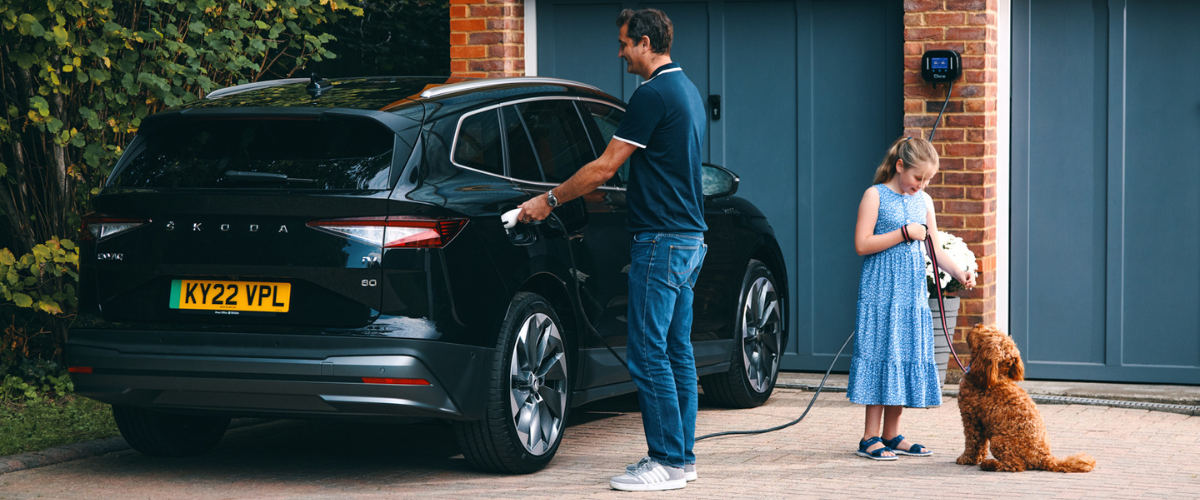
2. Distribution Network Operator (DNO) Approval
Next is the DNO. You may need approval from your Distribution Network Operator (DNO) to connect your home electric vehicle charger to the grid. This is because your EV charger will draw power from the local electricity network, and the DNO may need to assess the impact of your installation on the network to ensure that it can handle the extra demand.
In some cases, the DNO may require you to upgrade the local network infrastructure to support the additional load. This may involve upgrading your main electrical fuse. Whether or not the distribution network operator (DNO) needs to upgrade your fuse before an EV charger installation depends on several factors, including the capacity of your existing fuse and the expected demand of your EV charger.
In the UK, the standard fuse for a domestic property is 60 amps. 60 amps is typically sufficient for most households, but it might not be enough to support the additional demand of a 7kW home EV charger rated at 32 amps.
If the demand of your EV charger exceeds the capacity of your existing fuse, the DNO may need to upgrade your fuse to a higher capacity to ensure that your electrical supply can handle the extra load.
You may not need a fuse upgrade for an EV charger installation if the demand of the charger is within the capacity of your existing fuse. However, it’s worth noting that even if you don’t need a fuse upgrade, you may still need approval from your Distribution Network Operator (DNO) to connect your EV charger to the grid. This is because the DNO may need to assess the impact of your installation on the local electricity network to ensure that it can handle the extra demand.
Getting DNO approval can be a complex process that involves coordinating with the DNO and potentially upgrading the local network infrastructure. This can add additional costs and time to the installation process, so it’s essential to plan ahead and allow sufficient time for approval or any necessary upgrades.
At We Power Your Car, we take care of the DNO process for you. We contact the DNO on your behalf and provide them with details of the proposed installation, including the type of charger you plan to install, the expected charging rate and the maximum demand at your property. The DNO will then confirm whether a fuse upgrade is needed or whether they will approve installing the EV charging point without a fuse upgrade.

3. Building Regulations Approval
You will need to comply with building regulations when installing an EV charger. We can’t stress this enough. This includes ensuring that the charge point installation is safe and complies with electrical standards.
Firstly, any electrical installation, including EV chargers, must comply with the current edition of BS 7671: Requirements for Electrical Installations (the IET Wiring Regulations), which sets out the minimum requirements for electrical safety.
Additionally, EV charger installations must meet the electrical safety standards laid out in Building Regulations Part P. These standards are designed to protect people and property from electrical hazards that could arise from installing an EV charger.
At We Power Your Car, we are OZEV-approved, NAPIT and TrustMark accredited, meaning all our electricians nationwide are qualified and authorised to install EV chargers. Additionally, our engineers are consistently vetted and trained to uphold our high standards.
By choosing qualified installers such as ourselves to install your EV charger, you can have peace of mind knowing your installation complies with the necessary building regulations and electrical safety standards.
Whatever you do, don’t attempt to undertake an electric car charger installation yourself unless you are a qualified professional. Not only will you likely not comply with regulations, but there’s a high risk of harm due to dealing with complex electrics.
4. Neighbour Permission
In the unlikely event that your EV charger installation coincides with your neighbour’s property – for example, if the cable run crosses over your neighbour’s property or if you share a looped supply – you’ll have to acquire permission from your neighbour or inform them of the DNO’s required work.
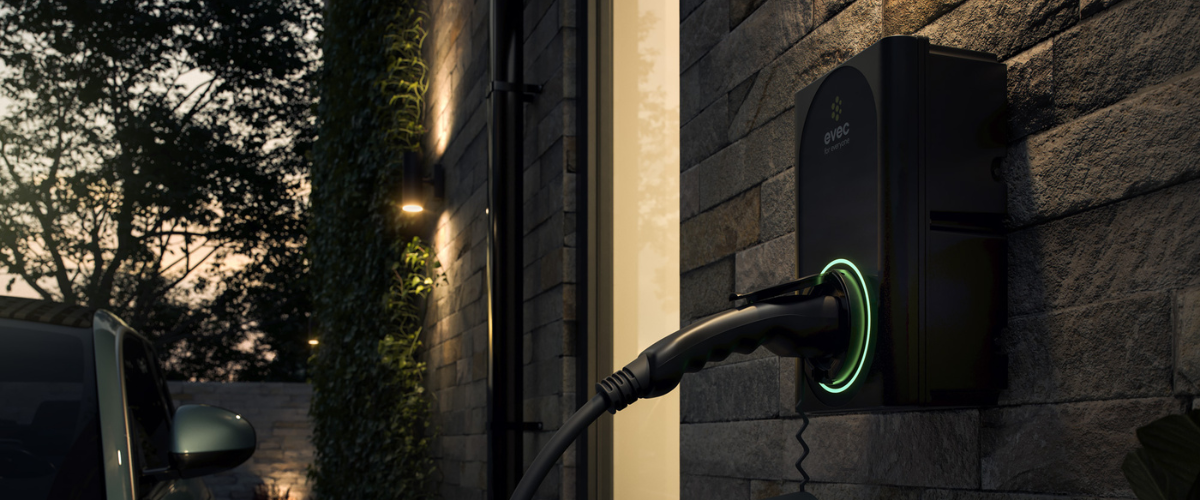
Summary:
- In conclusion, whether you need permission to install an EV charging point at your property depends on various factors, such as the type of property you have, the charger’s location, and your home’s electrical capacity.
- Typically, you don’t need planning permission for an EV charger installation unless you live in a listed building or are located in a conservation area.
- If you have off-street parking, you can’t have a dedicated electric vehicle charger installation unless you have a ChargeArm, which requires local council permission.
- If you rent, you must seek permission from your landlord before installing an EV charger.
- In some cases, you may also need to upgrade your electrical infrastructure, which would require approval from your Distribution Network Operator (DNO).
Interested in a home, workplace or commercial electric car charger installation?
From first enquiry through to complete installation, we handle everything within your EV charging journey. DNO notification, grant paperwork, advice and support. Sit back and relax.
If you are looking to get an EV charger installed today, choose the experts. To start, click below to get your free home charger installation quote. Or, contact us for more information or any queries you may have. Our range encompasses the best chargers on the market. From the intelligent Ohme Home Pro to the British Gas Hive, we have a charger for everyone.
For more information and our latest updates, follow us on Facebook, Instagram, Twitter, LinkedIn and YouTube.
Related articles
Stay up to date on the latest from We Power Your Car_
I consent to receive newsletters from We Power Your Car. Please see our Privacy Policy
